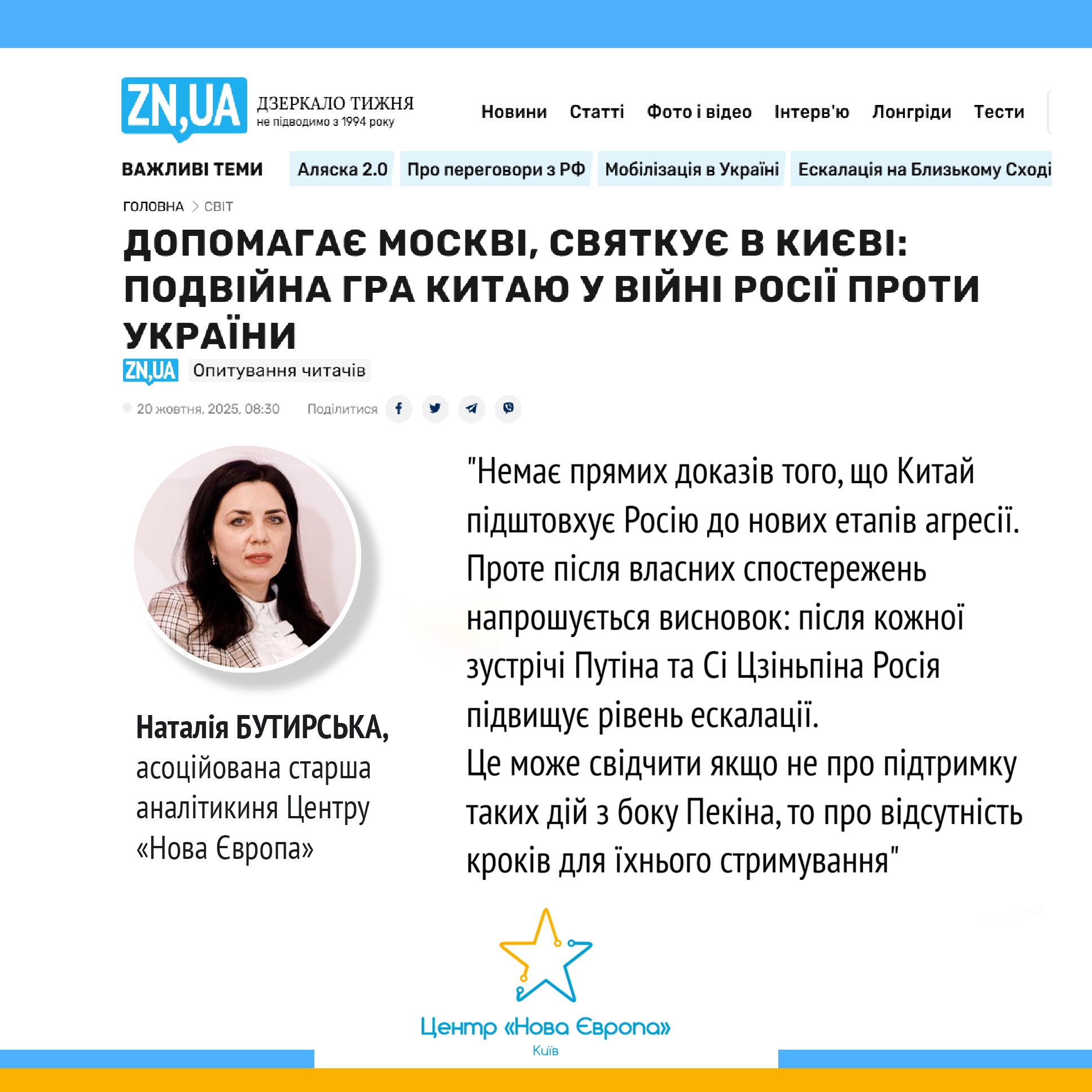
“There is no direct evidence that China is pushing Russia toward new stages of aggression. However, my own observations suggest that after every meeting between Putin and Xi Jinping, Russia escalates its actions. This may indicate, if not Beijing’s support for such moves, then at least a lack of steps to restrain them”
Nataliya Butyrska, Associate Senior Fellow at the New Europe Center, analyzes the contradictions in Beijing’s policy toward Kyiv in her article for Mirror of the Week. On the one hand, China declares a strategic partnership with Ukraine; on the other – it “keeps its distance instead of taking active steps for peace” in Russia’s war against Ukraine.
According to the analyst, both in Ukraine and in the West, there is a growing understanding of the Chinese factor and its influence on the course and outcome of the war. Attempts by both Kyiv and Western partners to bring China to Ukraine’s side have failed. Beijing has no incentive to end a war from which it derives significant benefits and acts as a key beneficiary.
Against this background, Ukraine faces challenges in shaping its policy toward China, both domestically and internationally, and must clearly define its vision for current and postwar relations with Beijing:
-
Ukraine’s resistance to Russia’s full-scale invasion is a civilizational choice, firmly rooted in the European and Euro-Atlantic space. Meanwhile, Beijing, alongside Moscow, is striving to build an alternative world order.
-
Possible Chinese security guarantees or peacekeeping involvement would risk not only undermining Ukraine’s integration into the European security system but also legitimizing the concept of a “joint and indivisible Eurasian security architecture” actively promoted by Russia and China, and directly contradicting Ukraine’s and the West’s strategic interests.
-
China’s potential participation in Ukraine’s postwar reconstruction raises both hopes and concerns. It is unlikely that Beijing would sacrifice its strategic interests to support a Western- or U.S.-led vision for ending the war. Moreover, structural limitations persist within Ukraine: China’s position is widely perceived as pro-Russian, while past disputes, particularly the Motor Sich case, continue to undermine mutual trust.
Read the full analysis by Nataliya Butyrska on the pages of Mirror of the Week (in Ukrainian).
This material was prepared with the support of the International Renaissance Foundation. The views expressed are those of the authors and do not necessarily reflect the position of the Foundation.







